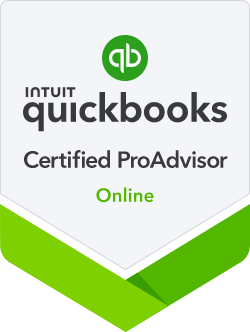A Small Business Owner's Guide to Tax Season Preparation: Understanding the Basics
Tax season can be a daunting time for small business owners and 1099 employees. The thought of navigating through a maze of forms and regulations often leads to anxiety and confusion. But fear not, we'll start with the basics to help you kickstart your tax season preparations with confidence.
Tax Season Timeline and Deadlines
Understanding the tax season timeline is crucial. For most individuals and businesses, tax season in the United States begins on January 1st and ends on April 15th. It's important to mark these dates on your calendar to avoid late filing penalties.
However, if you're a business owner, particularly one who operates as a sole proprietor or freelancer (1099 employee), you might be required to make estimated tax payments throughout the year. These estimated payments are typically due on the 15th of April, June, September, and January.
Business Taxes vs. Personal Taxes
It's important to distinguish between business taxes and personal taxes, as both may apply to you, especially if you're a sole proprietor or a small business owner.
- Business Taxes: These are taxes related to your business's income, expenses, and profits. As a sole proprietor, your business income is reported on your personal tax return, using Schedule C (Profit or Loss from Business).
- Personal Taxes: These are the taxes you pay on your personal income, including wages, investments, and any additional income sources.
Key Tax Forms
Now, let's talk about the key tax forms you need to be aware of:
- Form 1040: This is the main individual tax form. As a small business owner or 1099 employee, you'll use this form to report your personal income, including business income.
- Schedule C: This is the form you'll use to report your business income and expenses. It's crucial to keep meticulous records of your income and expenses throughout the year to make filling out Schedule C easier.
- Form 1099-MISC: If you're a freelancer or independent contractor, clients may provide you with Form 1099-MISC to report income they've paid you. Ensure you receive these forms and report the income accurately.
Self-Employment Tax
One important aspect of being a
self-employed individual is self-employment tax. This tax covers your contributions to
Social Security and Medicare. Unlike traditional employees, you'll need to pay both the
employer
and
employee portions of these taxes, which can be a significant financial responsibility. Understanding your self-employment tax obligations is vital to avoid surprises during tax season.

In summary, grasping the basics of tax season preparation is the first step toward a smoother process. Remember to mark your calendar with tax deadlines, differentiate between business and personal taxes, become familiar with key tax forms, and be prepared for self-employment taxes.
Stay tuned for our next blog post in this series, where we'll delve deeper into gathering essential documents for tax season. As always, consult with a tax professional or accountant if you have specific questions or need personalized guidance.
Preparation is key, and with the right knowledge, you can tackle tax season with confidence and ease!


